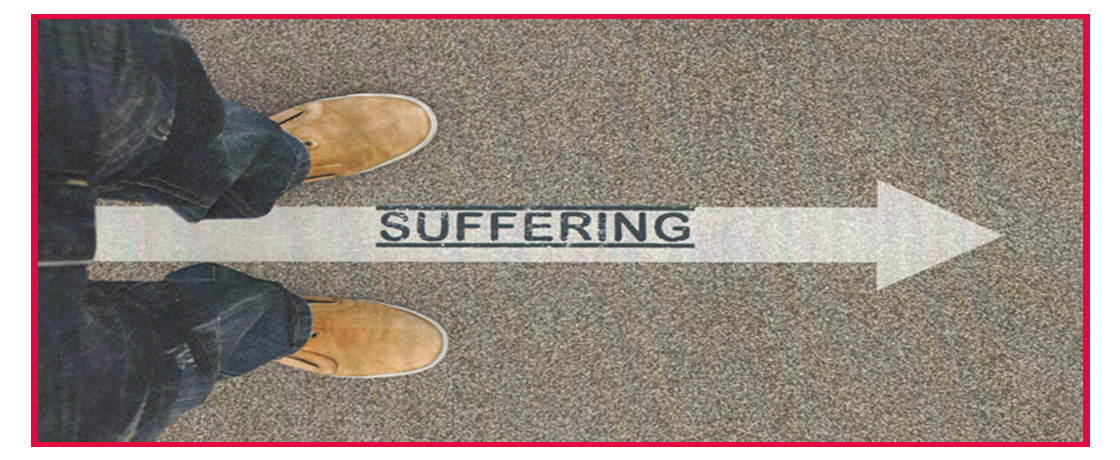A Theology of Suffering
A Theology of Suffering
If you live long enough, you will suffer. If you haven’t suffered yet, you will.
In the light of all the suffering in the world, often people ask, how can God still be simultaneously all powerful and good?
It’s when you suffer that you begin to think strenuously about this subject—when something happens to you, to someone you deeply love. You may even think you have it nicely boxed and cubby-holed until your spouse is diagnosed with an acute cancer and you watch the melanoma take them in six weeks. All the questions about suffering and evil are asked by the Bible itself.
In Psalms, for example, how often does the psalmist cry to God in an agony of uncertainty because of injustice that he perceives in his own life or in the nation? If we work through in our mind, in our reasoning, and in our value system before we suffer, allowing God’s word to guide us, then we will have a far more stable frame of reference to handle suffering when we get there. It doesn’t mean it won’t hurt. Of course it will. But there are certain things of the Christian worldview we need to understand that will enable us to think about suffering in a biblically faithful and fruitful way.
Good, Evil & Creation
Genesis 1:31 And God saw everything that He had made and, behold, it was very good.
The Bible does not give any support for philosophical naturalism, which says matter, energy, space, and time is all there is. It says, there is no God, just a natural world. If it’s just molecules bouncing, where is our sense of right or wrong, or indignation?
How can the naturalist come to Christians and start saying, “How can you believe in a God who is good and sovereign when you have all of this evil around?” Well, yes, Christians have to answer that, but everyone, Christians and non-Christians must try to present a valid explanation.
The problem of evil is not just a Christian problem. Anyone who thinks, has any moral decency at all, anyone who is made in the image of God, or is concerned about right or wrong in any sense, has to face this issue.
In addition, the expression, to know good and evil often has another overtone to it in Scripture. It means to establish good and evil, to be the being that actually sorts out what good and evil is. God makes something, and He declares it good. It is God’s prerogative, God’s place, and God’s knowledge that declares what good is.
Genesis 3:22 And Yahweh God said, “Look—the man has become as one of us, to know good and evil.”
Then in Genesis, the woman has been invited, in effect, to make her own list of what’s good and evil. She will declare what’s good and evil. This is not merely an invitation to break a rule, it’s more than that. It’s the beginning of all idolatry, it is to de-God God. It is to stand in God’s place, and decide what good and evil is for ourselves. It was the first instance, but it was not the last.
Judges 17:6 In those days there was no king in Israel, and each one did what was right in his own eyes.
That’s called idolatry. It’s establishing what is right for yourself, marginalizing God, putting Him off to the side, not recognizing any accountability at all, being your own god. Now, you have placed yourself at the center of the universe.
Good, Evil & Eschatology
There is a remarkable passage in Luke 13:1–5. Jesus answered, “Do you think that these Galileans were worse sinners than all the other Galileans because they suffered this way?” In other words, “Why do you think this happened? Because they were worse, more evil than you?” “No,” He says. “I tell you, unless you repent you too will all perish.”
Now in that case the suffering has come from an overt evil, Pilate’s overt evil, but the same argument holds when there are natural disasters. Verse 4: “Or those eighteen who died when the Tower in Siloam fell on them, do you think they were more guilty than all the others living in Jerusalem? I tell you, no! But unless you repent, you too will all perish.”
Jesus said the really surprising thing is that you haven’t died, but you will. “You too will perish.” So whether a disaster takes you out now or you die in 50 years, the point is you’re still all under this earthly curse. You’re still all under this sentence of death. The point is, all are cursed!
Whatever else a local church does, it had better prepare its members to someday die and face God.
One cannot live faithfully in this life unless you’re ready for the next life.
You cannot preserve morality, spirituality, doctrinal purity, or faithfulness in the home, or anything else unless you’re living in the light of eternity. So this stance from
the end of life begins to reconfigure everything in this life.So much so, that even if there are sorrows that we do not understand now, one day we will stand in the presence
of the King with our resurrection bodies, and we will look at everything from a different angle. But even now, God can TRANSFORM our suffering, if we look to Him and let Him.

